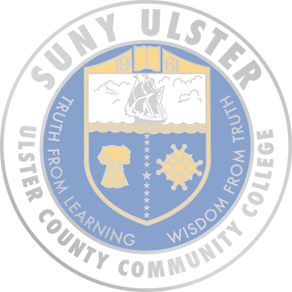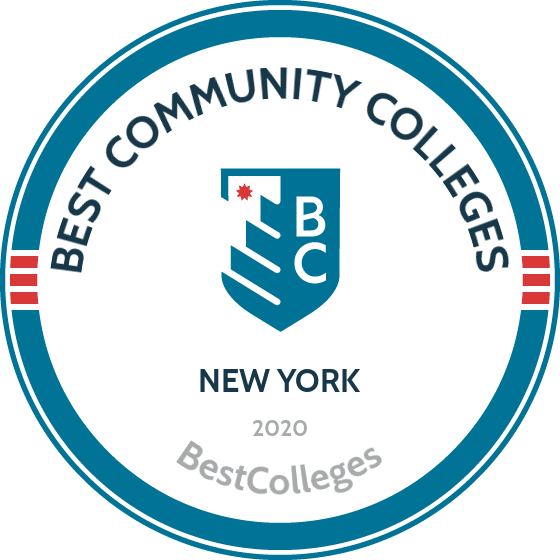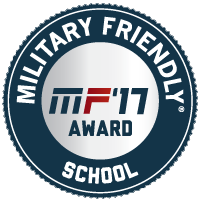Courses
220 courses found when searching within the Fall 2024 semester.
page = 2Two-Dimensional Design
ART 150
The two-dimensional surface and its structural possibilities are addressed in this course. Relationships between space and the elements and theory of design are studied. Students also gain hands-on experience in developing the necessary basic skills and techniques for using traditional media and the computer as design tools. 2 hr. lect.; 4 hrs. studio. Lab fee. Prerequisite: Enrollment in this course is by advisement. This course is reserved for art majors.
Life Drawing/Anatomy I
ART 209
In this course students continue to develop drawing skills working exclusively from the human figure and anatomy. Emphasis is placed on the organization of line, value, mass, and structure through short gestural drawings and more developed longer drawings from live models and the human skeleton. Using a variety of traditional and experimental drawing media and techniques students develop a strong understanding of the human figure and its importance in art history and relevance to a visual arts training. Assistance will be given with the development of portfolios for transfer to 4-year art degree programs. This course is reserved for fine art majors. 1 hr. lect, 4 hrs. studio. Prerequisite: ART 104.
Advanced Studio I
ART 214
This is a capstone course in the Fine Arts curriculum where students will work on advanced level studio projects and learn how to produce a professional portfolio. Emphasis is placed on a series of independent projects developing personalized subject matter, with the guidance of faculty. 1 hr. lect.; 4 hr. studio. Pre-requisites: ART 103 & 104. Co-requisite: ART 209.
History of 20th Century Design
ART 220
The course will introduce the student to artists, engineers, designers, manufacturers, and consumers to establish a definition for design history in the 20th century. The course will show the connections of the above mentioned via a broad interdisciplinary view of the economic, social, and esthetic values that determine a meaning for design throughout the century and how it may apply to the present. The course will cover numerous disciplines that include advertising, architecture, fashion, graphic design, industrial design, and performing and visual arts. An emphasis will be placed on Design and the “consumer.” Prerequisite or Corequisites: ENG 101
Branding Identity and Strategy
ART 262
The course covers professional and personal branding and identity campaigns, including logos/marks as well as social media and global online marketing platforms using Adobe Photoshop, InDesign and Illustrator. The course presumes basic computer and design skills. 1 hr. lect.; 3 hrs. lab. Lab fee. Prerequisite: none.
Astronomy of Stars & Galaxies
AST 101
Designed for the non-science major, this course provides an introduction to the universe beyond the solar system. This course offers a study of the structure and evolution of stars, galaxies, and the universe. Students must attend one night telescope observation on campus. 3 hrs. lect. Prerequisite or corequisite ENG 101.
Ancient Astronomy
AST 105
This course will examine the earliest origins of astronomy. The first half of the course will introduce students to the movements of the Earth and other solar system objects; the phases and cycles of the Moon; the origin of seasons, solstices, equinoxes, and eclipses; constellations and celestial navigation; and how ancient civilizations developed our earliest calendars. The second half of the course will be a broad survey of the historical development of astronomy from ancient times up to the scientific revolution of the Renaissance Period. Cosmologies from representative cultures around the world will be examined along with significant archaeoastronomy sites including the Egyptian pyramids, Nabta, Stonehenge, Newgrange, Chichén Itza, Machu Picchu, Chaco Canyon, Big Horn Medicine Wheel, and others. Pre and/or Corequisite: ENG 101 and MAT 110 or higher.
Fund Concepts of Biology
BIO 100
Designed for students who plan to study biology, nursing, or veterinary technology courses. This non-laboratory course covers topics from the basic principles of life through the cell concept. The course strengthens the student's in biology. Topics covered include cell reproduction, cell respiration, and classification. Students may not use this course to satisfy a science requirement or science elective.
Biology I-Non-Science Majors
BIO 101
Designed for the non-science major, this nonlaboratory course covers basic concepts such as the cell, principles of inheritance, and the species. Students study cell structure and function, DNA, cell division, and the kingdoms.
General Biology I
BIO 105
This is the first course in a two-semester sequence of BIO 105 and BIO 106. Topics of this lecture and laboratory course include the scientific method, evolution, basic chemistry, cell structure and function, metabolism and enzymes, cellular respiration and photosynthesis, cell division, and genetics. The laboratory component includes microscope work, examination of preserved and living specimens, and performing experiments with emphasis on the scientific method. 3 hrs. lect; 3 hrs. lab. Lab fee. Prerequisite or corequisite ENG 101.
General Biology II
BIO 106
This is the second course in a two-semester sequence of BIO 105 and BIO 106. Topics of this lecture and laboratory course include a survey of the diversity of life: taxonomy and phylogeny of the prokaryotes, protists, fungi, green plants, and animals; an introduction to ecology; and a comparative survey of form and function in plants and animals. The laboratory component includes microscope work, examination of preserved and living specimens, and performing experiments with emphasis on the scientific method. It is recommended, but not required, that BIO 105 be taken before BIO 106. 3 hrs. lect; 3 hrs. lab. Lab fee. Prerequisite or corequisite ENG 101.
Human Anat & Physiology I
BIO 107
The normal structure and function of the human organism, beginning with basic biological principles and progressing through selected organ systems, are the focus of this course. Laboratory work emphasizes hands-on experiences using the microscope, models, and specimens. 3 hrs. lect.; 3 hrs. lab. Lab fee. Prerequisite or corequisite ENG 101.
Human Anat & Physiology II
BIO 108
A continuation of BIO 107, this course covers the normal structure and function of selected organ systems. Laboratory work emphasizes human anatomy utilizing models, specimens, and cat dissections. Students enrolling in BIO 108 who are pregnant or breast-feeding should consult their advisors. 3 hrs. lect.; 3 hrs. lab. Lab fee. Prerequisite: BIO 107. Prerequisite or corequisite ENG 101.
Human Biology
BIO 109
This is a non-laboratory biology course designed for the non-science major who has an interest in learning about the human body. Students will study the basic anatomy and physiology of major body systems and some common diseases associated with those systems. Special emphasis will be placed on topics of modern concern such as new diseases and new techniques for treating the human body. Students will be encouraged to learn to use information in this class for making informed personal and societal decisions.
Microbiology
BIO 201
The study of microorganisms both beneficial and harmful to humans is covered in this course. Students learn taxonomy, structure, physiology, reproduction, ecology, and control of microbes. 3 hrs. lect.; 3 hrs. lab. Lab fee. Prerequisite: One year of laboratory biology courses.
General Ecology
BIO 207
This lecture and laboratory course provides a broad introduction to the theory and practice of ecology: behavioral, population, community, and ecosystem ecology. An underlying theme of the course is the application of scientific methodology in the practice of ecology. Throughout, the role of applied ecology in addressing environmental problems is explored. The laboratory component includes field work in local Catskill habitats, which can involve collaboration with NYS DEP, and an individual, semester-long project. 3 hrs. lect, 3 hrs. lab. Lab fee. Prerequisite: One year of laboratory college biology or by advisement.
Math for Bus & Industry
BUS 102
Students apply basic mathematics to situations encountered in business and industry. Emphasis is placed on solving word problems from a variety of topical areas including resource management, wholesale and retail pricing, payroll and accounting-related tasks, and simple and compound interest related applications.
Business Communications
BUS 104
This is a survey of written and oral business communication. It emphasizes techniques for effective communication, experience in creating typical business correspondence, and critical analysis of communications.
Entrepreneurship
BUS 115
Students are introduced to the basics required for starting and operating a small business. Subjects include marketing, financing, legal structures, franchising, and managing employees. Students will apply terminology and concepts in developing a draft business plan.
Principles of Management
BUS 161
The basics of operational theory and the science of management are presented. Concepts center on an analysis of the four major functions of management: planning, organizing, directing, and controlling. The course emphasizes the integration of management principles with other business procedures and examines management interactions with external environments influencing business.
page = 2




